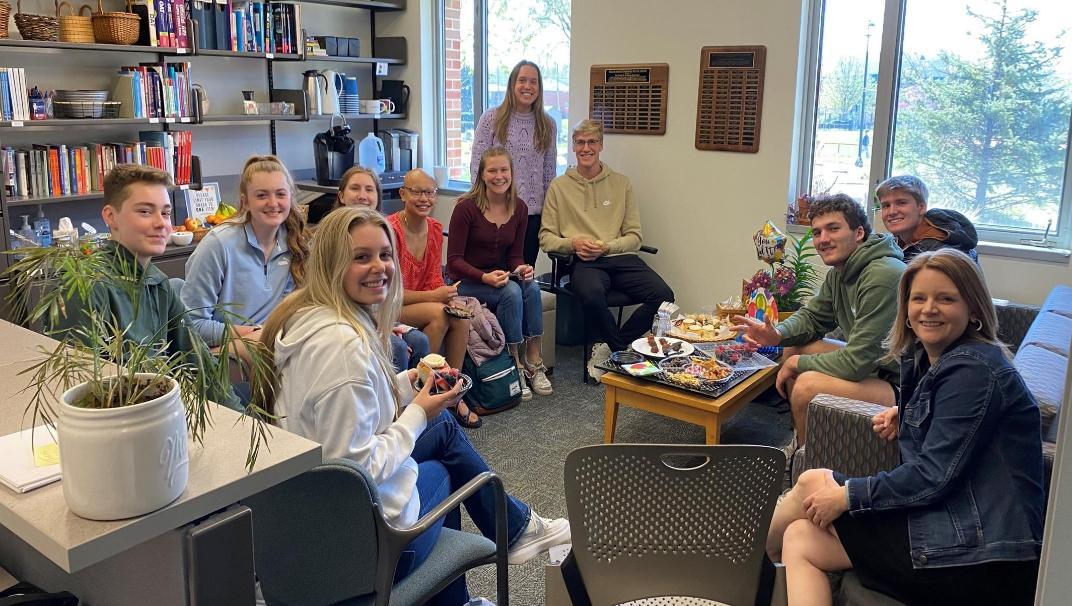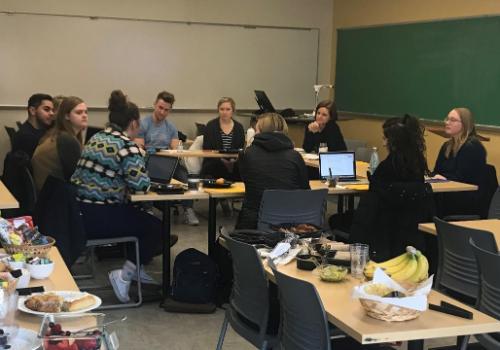Health Professions and Health Related Courses

(pictured above: SCI 201 Health Professions & Society course get together outside of class)
Health Professions Department Courses
The Health Professions program offers an opportunity for students to discuss current topics within the healthcare field and interact with healthcare professionals, hearing first-hand stories of the challenges and joys of serving others in a variety of healthcare careers. Three courses are taught providing unique experiences for students to engage, explore and personally reflect upon various issues within the healthcare environment.

PHP 201: Health Professions & Society is designed to help students gain a deeper understanding of the variety of professions impacting the healthcare environment today. Emphasis is placed upon the skills and attributes needed to effectively prepare for entry into the professions. Students will explore health care history, health disparities, healthcare delivery, and culture as it relates to healthcare practice, inter-professional collaboration and professionalism. This course is intended for freshmen and sophomore students.
PHP 291: Health Professions Colloquium provides a variety of topical discussions on issues relevant to work in the healthcare profession today. Dialogue and reflection upon the impact of the Christian faith and issues of medical ethics and care of various patient populations included. Discussion and assignments will prepare students for application to health profession programs. Prerequisite: Junior or Senior Standing.
PHP 292: Health Professions Practicum allows students practice at integrating the scientific and social principles learned in the classroom with situations in a healthcare setting. Students observe and/or volunteer in a specific healthcare context approved by the Director of Health Professions. The practicum includes an introductory and summative assignment in which students consider their motivations and goals along with the connections between healthcare practices, personal spiritual formation, and practical skills.
Consult the course catalog for full listing of current courses available.
